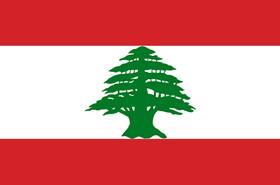
Despite the difficulties created for Lebanese fresh produce companies by the crisis in Syria, Lebanon has actually seen agricultural exports increase in 2012, according to the country's agriculture minister, Hussein Hajj Hassan.
Hassan told L'Orient-Le Jour that exports had grown by 20 per cent compared with 2011.
'Agricultural exports have risen by 50,000 tonnes compared with the previous year,' he said, 'mainly because of the decrease in production in Syria.'
However, Antoine Hoyek, president of Lebanon's agriculture association, said that only certain products had benefited.
Apple exports had doubled, he conceded, due to the low prices brought about by supply outstripping demand, while potato exports had also risen due to increased demand from markets in the Gulf no longer receiving Syrian produce.
Nevertheless, he said that this trend was not representative of the entire sector. 'The last three months of 2012 were truly catastrophic for traders,' he stated, blaming the non-renewal of taxes on imports into Lebanon.
'We have been heavily penalised by competition from Syrian producers,' he explained. 'Quantities of fruit and vegetables coming in from Syria have more than doubled.
Despite the crisis in the region, the agriculture minister still considers Lebanon's five-year plan to increase agriculture's share of GDP from 5 to 8 per cent by 2014 to be 'realistic'.
The ministry is reportedly investing L£50bn (€25m) in the development of agricultural exports, while an agreement has been signed with the Jordanian authorities to ensure regular imports of Lebanese bananas, lessening the impact of the decrease in volumes heading to Syria.



